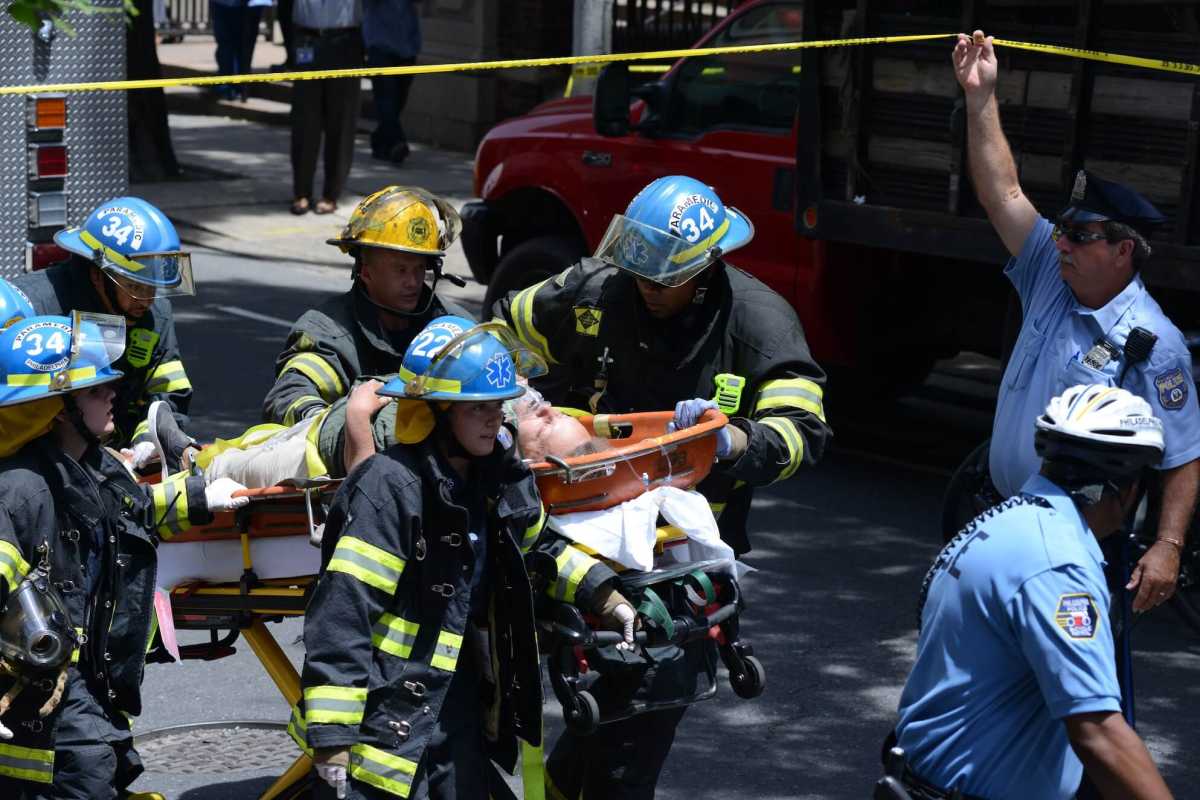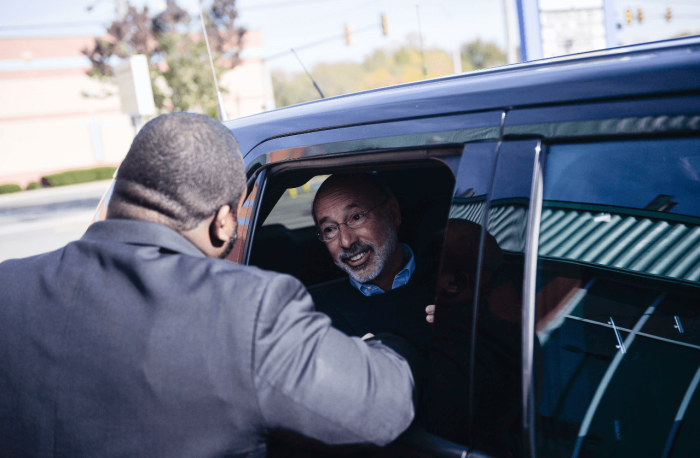The jury foreman’s first reading of “Not guilty” in response to a third-degree murder charge against contractor Griffin Campbell shocked family members of victims of the June 5, 2013 building collapse. But as the jury pronounced Campbell guilty on involuntary manslaughter charges, and repeated “guilty” for all remaining manslaughter charges and associated reckless endangerment charges, the only other sound heard in the courtroom was that of family members of victims and of Campbell weeping. Campbell, 51,was acquitted on all six counts of third-degree murder but convicted of involuntary manslaughter for the deaths of Anne Bryan, Mary Simpson, Roseline Conteh, Kimberly Finnegan, Borbor Davis and Juanita Harmin. Related tag: Contractor spoke with owner as wall fell
He could face decades in prison at sentencing, but the charges he was convicted of do not carry mandatory minimum sentences.
Campbell was the contractor overseeing demolition at a building site at 22nd and Market whena three-story wall that was looming over a one-story Salvation Army thrift store toppled over, killing six people inside and wounding 13 others. “It was always an avoidable accident,” said Bill Hobson, Campbell’s defense lawyer. “There are no winners in this case.”
Related tag: Contractor testifies in his own defense
Hobson hadargued at trial that Campbell was a small-time contractor with little experience in demolitions who wasfollowing directions from architect PlatoMarinakos, who was hired by site owner Richard Basciano of STB Investments Corp. “RichardBascianowill pay a price. He will be held in judgment by a higher court,” Hobson said.
Temple University law professor Jules Epstein said the standard of evidence to convict on third-degree murder charges is very high.
“Everyone agrees this guywasn’tlooking to kill anybody that day. The jury had to decide, since the deaths were unintentional, the degree of recklessness the behavior showed,” Epstein said. “The legal test for 3rd degree murder is not merely that someone is reckless but that the person ‘ consciously disregard[s] an unjustified and extremely high risk that his actions might cause death or serious bodily harm.’ Thejury may have thought it was close to that, but not quite there.” Attorneys for family members of victims said after the sentencing that more people will be held accountable for the collapse in pending civil suits.
“That jury only heard about Griffin Campbells fault, they did not hear about the fault of STB, Plato, otherpeople who were involved in this,”said Robert Mongeluzzi, who is representing the families of Anne Bryan and Juanita Harmin. “When it switched from hand demolition to mechanical demolition on June 2, it was in imminent danger … [and]STB or their representativeswere there every single day.”
Nancy Winkler and Jay Bryan, the parents of Anne, released a statement on the verdict.
“This criminal trial focused on the responsibility of just one person, Griffin Campbell,” the statement said. “For the rest of our lives we have to live without our daughter Anne. So we will not stop fighting for justice in her name – and for all the victims – and that means holding everyone responsible fully accountable. We now focus on pursuing justice in the civil trial.” Aiah Boya, husband of victim Roseline Conteh, was in the courtroom to witness the verdict.
“I feel like there was justice today,” Boya said.
Campbell and equipment operator Sean Benschop, 44, were the only people criminally charged in the collapse, which also injured 12 people.
Benschop pled guilty in July to six counts of involuntary manslaughter and other charges. Prosecutors said they would seek a prison sentence not to exceed 10 to 20 years for Benschop, who tested positive for marijuana. Campbell rejected the same plea offer that Benschop accepted.
Additional reporting by Dan Kelley






























